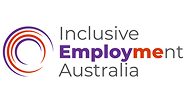
Shifting Employment Needs are paving the way for those with Mental Health conditions across Australia
Australia’s move to ordering online and staying local during lockdowns is driving a rise in jobs suited to people living with mental health conditions, according to leading employment services provider, atWork Australia, which has seen a 52% rise in people finding work during September, compared to March of this year.
“In Victoria, we are seeing the biggest number of roles that are relevant for our clients living with mental health conditions, since the start of COVID-19. These range from opportunities for baristas and kitchen hands, to warehousing pick packers and supermarket delivery drivers,” says atWork Australia Employer Engagement Consultant, Cheryl Stevens.
The atWork Australia job placements data shows a steady climb in all States, including Victoria. It’s also predicted that this positive trend will continue following announcements from Australia Post and other major retailers that they plan to hire thousands of people in the lead up to Christmas, in roles that are well suited to people living with mental health conditions.
“People with mental health conditions often suffer an associated lack of self-belief, low confidence and social anxiety, which we coach them on to help find sustainable employment. The roles that are increasingly available in Victoria provide lower-pressure environments and don’t rely on specific expertise, making them perfect for getting onto a career path,” Cheryl adds.
Businesses have a pivotal role in supporting those with mental health conditions, which recent research shows are increasingly affecting the unemployed and casual workforce1. The mental health responses of Australian adults to COVID-19 have revealed a significant negative impact, in particular on those who are already vulnerable, according to a recent study2. Of the respondents, 78% reported their mental health had worsened since the outbreak of the pandemic with 50% experiencing feelings of uncertainty, loneliness and financial worries.
“The pandemic has pressed fast forward on the growing rate of mental ill health, with research showing that these conditions are at least twice as prevalent as they were in March 2020. Fortunately, gainful employment can help provide social interaction, purpose and other benefits for mental health. With World Mental Health Day around the corner on 10th October, there is an opportunity for businesses to review how they are tackling this issue,” adds Cheryl.
Beyond supporting those living with mental health conditions, businesses also gain a lot of benefits from creating inclusive workplaces, as research shows that in nine out of 10 cases (90%), employees with disability, injury or health condition are as, or more, productive than their peers and almost the same number (86%) show superior attendance. What’s more, they generate less turnover and fewer workplace injuries than other workers.
“Generally, employers aren’t concerned about a candidate’s mental health condition and are focused on what they can bring to the job,” continues Cheryl. “In fact, one company owner asked if there was an opportunity to hire more people with mental health conditions, or people living with disability, as she found they were harder working and more engaged in the business,” she adds.
For many people living with a long-term mental health condition, gaining entry into the workplace can be a huge first step, as was the case with a recent client of Cheryl’s, she continues: “We recently placed a 23-year-old client who had been applying for work for 72 weeks, while going through coaching to manage his condition, low self-esteem and social anxiety. After more than 18 months of hard work, he was able to get his first ever job within a local warehouse during Victoria’s hardest lockdown. This is the type of impact the changing job landscape is creating for those with mental health conditions.”
Read more about how we support people living with mental health conditions to find good work.


